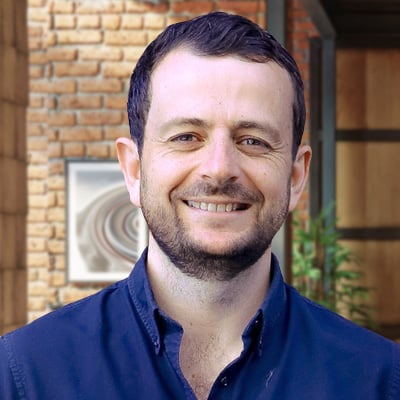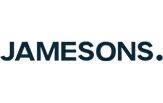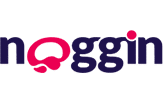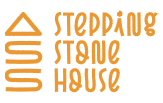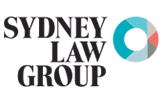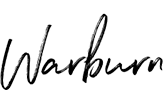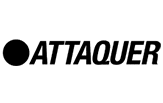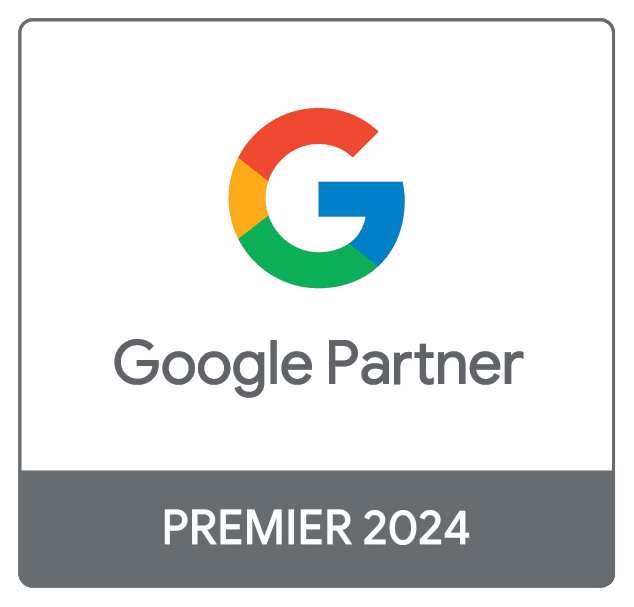Inhouse vs Agency with Racquel Collard
Episode Description:
Do you need a marketing agency, or can you get everything done in-house? Does there need to be a "problem" for you to consider external partnerships? With experience on both sides, Racquel Collard debunks the inhouse vs agency debate.
Key Takeaways:
- What are the signs you should look for an agency?
- What are the signs you should look in-house?
- What benefit can agencies bring that in-house can't deliver?
- What can you get done in-house that would become difficult outsourcing?
- How do you get the most from an agency?
Additional Resources:
Featuring:
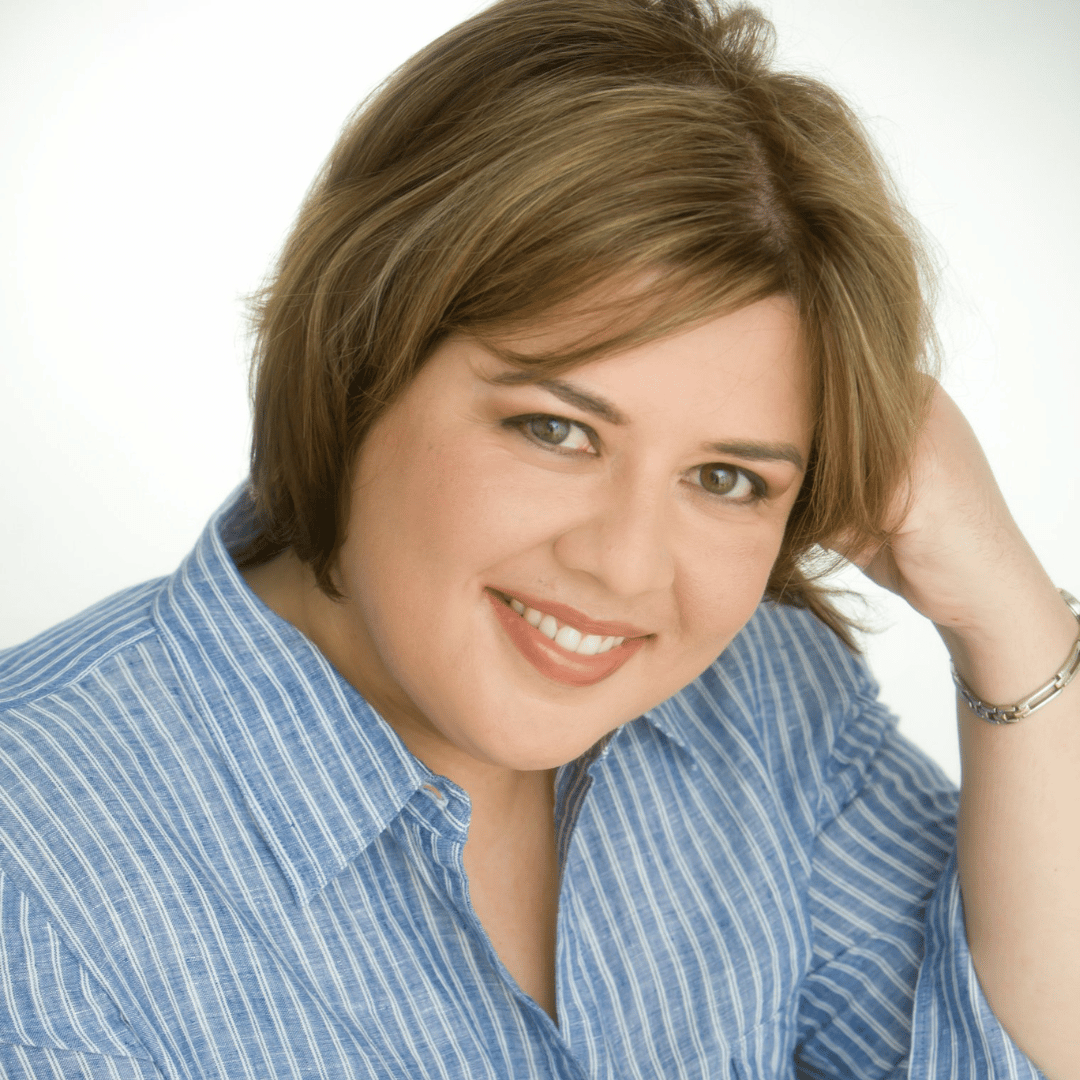
Racquel Collard
About the Guest:
Racquel Collard is a marketer with over 15 years of experience, working in-house and on agency side to deliver marketing ROI for businesses and brands of all shapes and sizes. Follow her on LinkedIn, or visit her website.
Transcipt
James Lawrence: I'm so pleased to welcome to the pod Racquel Collard. Racquel is head of marketing at 4Cabling, the largest online retailer of cabling and accessories in Australia. Previously, Rachel was head of Marketing Australia and New Zealand at the Grace Group. Working with brands and units like Grace Removals, commercial projects, Grace Fine Art. Prior to that, she was head of marketing at Office Brands, overseeing marketing strategy for an organisation with over 160 outlets around Australia. She's a leading Australian in-house marketer. Rachel, welcome to the pod.
Racquel Collard: Thank you. It's good to be here.
James Lawrence: So what are the signs in your experience - having worked in quite a lot of marketing environments - what are the signs that you should start thinking about using an agency for a particular discipline or product or service?
Racquel Collard: I think a lot of the time it comes down to the expertise you've got in-house. So a lot of the time, particularly for smaller businesses, you've got a much tighter team with fewer areas of expertise than other businesses. You've got a marketing team and they all cover different areas of specialisation usually. I usually find that if I don't have the resources to do something in-house, that's when I start looking at agencies, or if I don't think we've got enough skill to do something quite niche, like, for instance, coming up with a whole new brand identity, then that's not something that most marketing teams are skilled to handle or can do it as well. So I think it really comes down to looking at what you want to achieve, looking at what resources you've got to do it, and then see if it makes financial sense or team sense to actually work with agencies.
James Lawrence: Yeah, I think we find that we've got an appeal to always have some smaller businesses and some larger businesses and generally feel that for smaller businesses, if they have smaller marketing teams, we're probably doing more stuff for them. And then if it's a bigger business, we're probably being brought in to do one thing, whether it might be SEO or a component of SEO. And if a smaller business you might be doing three or four channels and kind of driving a lot more of the marketing strategy.
Racquel Collard: Yeah. The other thing as well is a lot of areas are quite specialised, so it's actually hard to stay up to date. Normally if you're a marketer, you're passionate about marketing and you like to keep up to date with what's going on. But for instance, SEO, particularly an algorithm, changes! You don't know if it's just you or if it's happening across a range of businesses, whereas an agency can look at their clients and go, you know what? That algorithm change has had an effect here. This is what we do to fix it. The other thing as well is agencies often have a lot more access to people like Google Specialists. So if it's PPC or SEO, they get more insights than you can get just as a standalone business. So those kinds of things are very valuable because they really help with the sanity check. A lot of times if you're just marketing your business, you're operating in a little bit of isolation and that's fine. You know your business better than any agency ever will, but they can look at it from the big picture and say, okay, you've got some opportunities here or this algorithm's changing. There's a security patch you've made you need to install. You've got to do it urgently. If it's one of 100 emails in your inbox, you may not think it's a priority, but if your agency calls you and says this is important because people are getting hacked, then you get it done.
James Lawrence: We were talking before we jumped on here - I'm not trying to push an agency agenda and you’re not trying to push an in-house agenda. But I think that's how we will often position - like why use Rocket versus in-house things. We might be running 60 campaigns that have very similar traits to yours and you don't want to be a guinea pig on your own campaign.
Racquel Collard: Well, sometimes you have to because you can't afford to lose an agency just yet. But I think, yeah, it's much easier to put learnings across a broad base of campaigns that are similar, than it is to just on your own focus. Even though for instance, at 4Cabling, it's a very technical kind of business, so it's got very specific terminology and phrases that get used and, working with an agency, we have to provide that information. There's a lot of things that, you know, negative search words you can't say because we're going to end up randomly showing up in the wrong searches, that kind of thing. But a lot of that you can get from the tools you use just to set up campaigns. But that expertise, you're not going to get that. The agency doesn't bring that much to the table. That's what the client brings to the table side. But yeah, the balance, it definitely helps. And if you can get that all working together, then obviously you benefit more than you can just on your own or just letting an agency run with whatever they think is right, which is sometimes right and sometimes not.
James Lawrence: Yeah, that's it. That's exactly one of the big benefits of doing stuff in-house, is you have a dedicated team with generally more hours to do something and you understand the business better, whether it's understanding what the sales team is up to or understanding what the product does or industry jargon, that's something that's much harder for an agency to wrap their head around.
Racquel Collard: Absolutely. Yes.
James Lawrence: And I think definitely wanting to discuss with you, how do you bridge the gap, right? How do you get the two working as effectively as possible together?
Racquel Collard: Yeah, it's actually a hard juggling act, I will be honest, because usually when you're working with an agency, you've got your account manager and then you've got your specialists that are working on different elements of what you need. I think that's a lot of people to get into the loop of what it is that you do. And because they're not living it day by day, even at a marketing time for a technical company, a lot of the time I don't know how to use Fiber, but I would say it does and I can go and ask them. So I think trying to keep that open, trying to probably direct a lot of the requirements, even though the agency's going to know what you need, for instance, in terms of SEO or branding, for instance, what I do when I'm working with design agencies or brand agencies is we set up a framework and I make sure that that framework is translatable for my team to then go and use. When we did our rebrand, the agency knew that the plan was for us to do a lot of the ongoing design stuff in-house, but use the templates that they create because that's the way I could get things done more quickly, much more cost-effectively.
Racquel Collard: But I had to frame that as part of the whole brief, saying; You will then give us working files that we can then go and create some files with and things like social media templates provide us with that and then we'll fill in the gaps… spec sheets, fact sheets, that kind of stuff. So I think the best relationships I've had with agencies are when we've been really clear about what we want to get out of that internally and then how it's going to live and breathe after we've done the initial project or what it's going to look like on an ongoing basis. If your agency's good and if they're real people and they're not trying to sell you a solution that you don't necessarily need, they'll work with you on that. But you do need to drive it and you do need to be checking results and you do need to be making sure that you're getting what you need out of it. And that means it helps if you know what you're talking about. It helps if you know what your analytics look like, if you all agree on what the analytics are going to be for any particular project or what the agreed outcomes are going to be, that's how we get the most value out of working with agencies.
James Lawrence: And I think that's kind of part of the reason I wanted you to come into the pod for this topic, because I mean, we've worked together in a few businesses now, and I think you do a really good job of, I think delegate, not abdicate. I think there's certain clients that will come to us and kit's meant to be some kind of magic wand and it just doesn't it doesn't work that way.
Racquel Collard: And that’s going to fail on all fronts, isn’t it?
James Lawrence: I think understanding the first bit that you touched on, you know, people make mistakes and people have strengths and weaknesses, but also just the idea that to actually make it work, it is a partnership and it's so cliched, but, you know…
Racquel Collard: It has to be. That I mean, it's a cliche for a reason, I guess.
James Lawrence: Yeah, totally. So I mean, I think the benefits of using an agency for certain things, what conversely, would be situations or examples of signs you shouldn't work with an agency and you probably are best bringing something in-house.
Racquel Collard: A lot of things - immediacy is a big one! If you're working with an agency on your social media, for instance, that you need to be able to react to something that happened in a day and it takes them way to long to respond or, you need artwork and you need it turned around quickly because there's a deal that is waiting to happen and you can't wait for a few days. I think that's when you start looking at having those templates I mentioned earlier available for you to use internally. The other thing as well is a lot of times we do project work with agencies, so we set something up technically. So a good thing on that would be SEO - getting a site audit. Getting a list of all the things that we technically need to get fixed and then we either decide to do that fixing in-house, or we outsource it to developers, or we outsource it to the agency to do for us. But I think a lot of that we make the call on; one, what's the skill level we've got in-house, two, what's the most effective way of getting this done? So is it urgent? Do I need to get it done now? I don't have the resources in-house. Get the agency to do it. Or it's not urgent. It's something we'll add to the to-do list and we'll just schedule it to happen in-house. With the SEO stuff we've done recently, for instance, we find great value in the keyword research and the structure of how content needs to be changed on different pages and that sort of thing, because that's not something we've got the time to do in-house, but we are also building up our copywriting capabilities. So now it sort of gives us the research, gives us the structure, and we'll get the words done internally. That wasn't the case originally. It's just that we've managed to get the resources in-house.
James Lawrence: I mean, you're taking work away from us.
Racquel Collard: *laughs* Yeah. Yes.
James Lawrence: *laughs* Thanks.
Racquel Collard: But we do. Yeah, we had that conversation with our account manager. It was, okay, we've got this resource now, so how are we going to best utilise the time you guys are spending? By the way, we haven't reduced the retainer, we're just getting different stuff from it.
James Lawrence: But I think that's it like - we have a value called ‘do right by the client’. I get it. I will always say it doesn't make sense to do something with an agency that you can do in-house. So I think like you said, use agencies strategically, use them to do the auditing strategy, which will kind of set the roadmap, set the strategy for moving forward, whether it's Google ads or whatever it might be. Because we probably have seen it before when otherwise you're trying to be police shooting in the dark a little bit. But yeah, why would you pay one of our copywriters to sit there in an agency working on copy for a product that we don't even really understand? If you've got a resource sitting there?
Racquel Collard: And that's what we did with our content. I mean, I can give you headings on what it all is, but you guys don't know the difference between Cat5e, Cat6, Cat6a and why you would use them. Whereas I've got a salesperson sitting right there who I can pick their brain and get the answers and then put it into a sentence that I may or may not understand completely but be interested in. But, you know, it's going to get me much better quality content for that particular one. So then I suppose outsourcing to copywriters as well is also outsourcing still. I think that kind of thing, it definitely makes sense, I think. The one thing I will say about agencies and one thing about working with you guys… open and honest communication! Again, another cliche, but without it, there's too many spikes and memories or you're just not honest with each other. And the reality is, if I can do something cheaper in-house and I've got to return an ROI on my board and you guys have got to return an ROI for your clients... Why wouldn't I be upfront with you about that and say, okay, and these are the skills I've got. These are the skills we're developing in-house and work out the best way to get the most bang for our buck.
James Lawrence: Maybe for younger marketers listening to the pod, often you kind of think that. Front footing it by being transparent about how we're thinking of hiring for this role or thinking you've been housing this, that the agency's going to lose their mind or cut you. It's like, no, it’s actually fine. We can move the scope around, we'll take that out and sub something in or we can just reduce the scope because it is like generally, if we're driving value for a client, they'll retain us, build trust, budgets go up over time and everyone wins. But I think don’t be shy to have a very frank conversation with your agency partner about we will take this part of the scope in-house because we think we can do it better. And often if there's tension in one particular area, removing that can then allow the rest of the work to be done more smoothly and better. I think that's a good takeaway.
Racquel Collard: And it also means you're not trading off with as many elements to get out of your retainer, isn’t it? I mean, we know that we pay a certain amount to an agency. These are the number of hours that you're working on. You know that in the background, that those are the outcomes you want to get. If you start upskilling in-house, that means you can spend those agency hours on something else that might be something that you couldn't afford to do previously. So it's a good way of progressing through your marketing plan.
James Lawrence: We're only a subset of the types of providers that you engage that we do, you know, fundamentally Google ads and it's your own paid social. What are the types of services or offerings you have found to generally work best using agency partners? And what are the the types of things that you find in your experience are best done by you and your team in-house?
Racquel Collard: A lot of it actually really depends on the size or the time of the business. So if you can, things like community management on social media is definitely best done in-house because it's your brand, it's your people, you're better to represent it. But then things like scheduling regular social media posts, is that something that if you've got a really small team who are time crunched? Then that might be something that you can outsource. But you still have to develop the calendar and the content and the strategy. So a lot of the times with the scheduling tools you've got, it's easier to do it yourself. At the same time, I think branding is something I definitely outsource every time, and the reason for that is it gives you an outside view of your business and where you want to be, where you think you are, where you want to go, that kind of thing. And there's more discipline around that kind of structure. So I think branding is something; one, you don’t scrimp on and two, I’d definitely get specialists in.
Racquel Collard: For larger businesses, web development and web maintenance, are often quite expensive to have, particularly if you've got something like a Magento website or a major Shopify instance, that kind of thing. But they bring expertise that it's actually really expensive to have in-house anyway. For instance, at 4Cabling, we've got web developers who do our maintenance and every time we do an iteration of the website, they do the build, we work with them very closely, they are external. And then I've got an internal ecommerce guy who does all of my product uploads and everything like that, and then optimises, does a lot of the technical stuff on the SEO side, when you guys have given us a template to say this is what you've got to fill in, or these are the issues that the technical audits revealed. SEO people say for really tight budgets, I have done them in-house, but I always find that they get to a point where the results plateau. So whilst a 300% ROI might look great, I know that if I work with an agency all of a sudden that could triple just because they're looking at it differently and they've got, you know, access to tools I can't afford to have.
Racquel Collard: Yeah, that's another thing for SEO as well. Yes, you can go and get your Semrush subscription, but you've got to learn how to use it. You've got to be willing to use it regularly. And is it easier just to get an agency to give you all the technical outputs and say, this is your to do list? And I've got to say for me, most of the time that's definitely gold. Yeah, PPC, that one. Usually if you've got a big enough ad spend, I'd be definitely sending it to an agency. But then I'd also be looking at the metrics really, really carefully and keeping them accountable because an agency is going to go for the low hanging fruit and they're going to go for the best results. But sometimes we've got to as a client, say, okay, I know that that product category is delivering you a much better ROI, but I need you to make sure that we are present here because this is gold for us, even though it doesn't look like it on your metrics. So that kind of thing is really quite important.
Racquel Collard: Copywriting. So many copywriting freelancers out there. If you get one that's really good at your area of technical expertise, really quite hard to find those in agencies. So it is oftentimes better to either employ them in-house or outsource to a very specialist copywriter if that's kind of what you need to do. But those are probably the main areas we look at. A lot of graphic design we do outsource, but these days I’ve usually got an in-house designer. So if they get provided with really good templates and really good structures and a really good style guide, I can usually generate a lot more content in-house. And for things like catalogues, so that's invaluable. So because catalogues are huge projects, if you outsource them, they cost you a fortune. But if you've got a designer in-house who can work on it over the next six months in between EDM headers and social media posts and everything like that, it's much more cost effective to do it in-house. So lots of trade offs. But but ultimately, with all of that, the decision is, you know, what's the plan? What are the outcomes we're looking for and then what's the best way to actually resource it? And I think that happens in any size business. If you don't have a plan, then you're probably not going to be moving forward. With the website, we have had eCommerce managers in-house, but the trade off there is either they're not as good at product and they really good at programming, or and they want to play with things in the programming. Or you look at it as; this is my shop front, stop messing with the back end and maybe make it more about the products that we're selling. So yeah, a lot of that really technical stuff is ideal to outsource, particularly because it's hard or expensive to have in-house.
James Lawrence: Yeah, that's a really good summary. I think all the things you touched on, there are probably similar observations that we have pretty much bang on and then it really then just comes down to size and need. Where I think as businesses do get bigger and you can start having more than one person in a particular state of expertise, then maybe you start looking at announcing more stuff. But if you kind of rely on half of an expert to do a technical job, often it's hard to get someone inside to know they're good and you’re probably best off rather than another head count and training and recruiting and whatever else, use an agency that is proven. That's really good. I think we've probably touched a little bit on it so far, but let's pretend that you've decided to use an agency for a particular piece of work. In your experience, how do you get the most from an agency?
Racquel Collard: A lot of it is how you start. So having really clear parameters about what the project looks like, what the expected outcomes are, who's doing what parts, making sure that you're not operating in isolation, and that you have communicated exactly what it is you do want. But that does require you to know what the goals are in the first place. I think they open with input that comes back because obviously an agency is a specialist in an area. You've chosen to work with them for a reason. If they make a suggestion, spend the time, work out if that's the right direction for you, or if it isn't, then why isn't it? And then open with that. So I'd say take a lot of the time to scope the project properly, make sure everybody knows exactly what the outcomes are going to look like, because things like a website build - for instance, we've just gone through another one recently and how we thought the API was going to work is not how the API actually did work. And then we had two suppliers on the API and they both had completely different viewpoints and that was a data integration piece that was quite complicated.
Racquel Collard: We all thought we were on the same page and speaking the same language. Turned out we weren't. We fixed it, but that kind of thing, if you can avoid those kinds of problems as much as possible, totally make sense. Again, the communication piece. So be honest about what you're trying to achieve. Don't try and say, I don't know. Some people with agencies want to present themselves as being bigger and bolder and brassy than they actually are, and they don't want to show any vulnerabilities. But the reality is, if your agency doesn't know what you need help with, they cannot help you with it. You might have to take a knock to your ego, but maybe get over it and try and get the best of yourself. But yeah, I think that clarity to start with and then time frames. So budgets, scope, budget time frame, knock those on the head, get everybody on the same page, and then make sure you've got KPIs that everyone is accountable for and you can keep track so you don't get to the end of the project and find out that something's slipped. Yeah, make sure that you're measuring things as you go through.
James Lawrence: Let's that's it. It comes back so much to the point around; I was thinking of actually bringing something back in the house. Just have an open conversation about it. Same thing like this; we’re on the other side of the fence and so many prospects will come to us and they'll be guarded about budget or they'll kind of be guarded about giving us access to certain things. And it's like, no, like you don't have to go with us as a bunch of other agencies that, you know, you can get quotes from and work out whether it's a competitive price and whether the budget's right. But just give us everything. Tell us exactly what you need to achieve and what resourcing you have to do it and what's working, what's not. And then we'll tell you if we think we can help you or not. But I think for people there is almost this game where people are kind of keeping their cards close to their chest. And I'm not actually sure it helps anyone.
Racquel Collard: You don't want that information out there in the aether, but by the same token, you can't get what you need without some sort of honest exchange of information. So it's a hard one to get a lot of particularly C-suite people across. But the other thing I find as well, like agency size is a huge issue. So if you're a small or medium sized business, you want to be a big fish in, you know, in a little pond as opposed to a tiny little fish in a massive pond. So I think finding that kind of link, the only way you find it is talking budget, talking to them about what sort of clients they're working with as well. Would you be a major player for them or would you be a small one? Is that going to change the service level that you get? Because the reality is, we all work on the top 20% of our client list, much more than we work on the bottom 80%. That's just economies of scale. That's just how that works. So you've got to make sure that those are all the right fit for you. So it might be that if you're a small start up, you start with a smaller agency and then you start working with other ones as you get bigger. So it's hard to cut those ties sometimes, but I think sometimes it's the best thing to do as well. Particularly the agencies that often specialise in a particular area. So as you move out of that area of specialisation, it's probably time for you both to be saying, Well, you might want to be looking somewhere else now. A lot of agencies, they don't do that any more than a lot of businesses do that with their clientele. Because you don't want to give away something that's guaranteed income, but it's not always the best solution to stay.
James Lawrence: I think that's a good, fair comment. And it is true - there's no best agency, right? It's about the most appropriate agency for a particular problem to be solved in a particular type of business. And yeah, I don't think from the other side like it is, you know, Rocket. I think we do a good job, but there would be certain scopes of work which we would struggle to deliver upon. If Commonwealth Bank came and said; hey guys, we need to roll out this huge campaign, we just wouldn't have the scale and the team to deliver upon it. Because we're built to serve a different part of the market. And equally, if it's a really small corner shop start up, we're probably not a good fit either because of our minimum budgets and we're kind of more accustomed to playing in that small to mid-market kind of space. And I think you don't want to be the biggest fish in a small pond. You don’t want to be the smallest fish in a big pond. You kind of want to, you know, have good cultural alignment.
Racquel Collard: Sweet spot. Yeah, it needs to work.
James Lawrence: Yeah, that's right. It's interesting. There's some good stuff there on how to get the most from an agency, because I do feel like we worked with you into two different organisations and I think you do sort of a really good balance of being demanding, getting good results, getting good value out of us, but also giving us what we need in order to deliver, do good work and also make money out of it. So I think you do tread that balance really well.
Racquel Collard: But the thing with it is we've both got to make money on it anyway, so I've got to get the results I need and you guys have got to be able to run a business. The one thing about agencies, if you find the agency cares about their time and protects their business as much as they protect you as a client, then that's a really good balance because I have in my marketing team as well, and my job is to protect them and get the most out of them. And I would expect you to be doing that on your side.
James Lawrence: So that was a perfect segue to my next question. What are the traits of a kickass in-house marketing team?
Racquel Collard: Marketing. Passion. You've got to have it. You definitely need a mix of skills. That's a given. But I think for me, for marketing, if you're about to go into a huge video blitz, for instance, then you need somebody in-house who's really into video because media is not something you sort of do once and then let run. So for me and also the whole COVID things changed up how I'll make them working now. So where I used to have like a marketing coordinator, my e-commerce person, a graphic designer. I'm now mixing it up. Then I've got more part-timers and everyone's working remotely and it's we're spending more time on Zoom and chat and all the rest of it just sort of to keep in sync. But I think find fun marketing members who are really good at particular skills and then you can train them about what your product is.
Racquel Collard: My product at the moment, not sexy, not that interesting, but I've got a very cool graphic designer, I've got a great content person and I've got a product person who knows the products inside out. You need the technical skills, you need the passion to learn more as well, I think. And any marketing team has to be a team and it's a bit twee to say it, but they've all got to be working together. So there's no point in having the best graphic designer if she's not talking about the social media business or providing the product guy with the photos that you know he needs for his product listings. So they've got to be able to work together. You've got to be really good at communicating, particularly when we're working remotely. I spend most of my life on chat, but we do have blackout periods where we can actually sit down and get work done because I've needed to do that, particularly for strategy stuff. You can't sit there and have chat going and your email going. So I'd say definitely bring in a mix of skills, even if they're maybe not the technical skills like SEO or programming, that kind of thing. But having an in-house copywriter gives you a huge amount of flexibility. Having an in-house design only gives you huge flexibility. Having product experts again gives you that knowledge and the ability to create what you need to create when you need to create it. So I think that versatility, I think flexibilities key these days, every marketer wants it.
Racquel Collard: You know, some people want to be in the office, some people want to be at home. And I think we've got the tools now. We can do whatever works best for people. The other thing, the whole variety to flexible working was actually only brought about in this organisation, for instance, because we were forced to with COVID. So the shutdowns were a great opportunity for us to demonstrate that we could still deliver the results needed. And you didn't have to see us sitting in the office and now we so value that. That's a way to keep everyone motivated and the way to keep your team passionate. And it gives them the flexibility to do what they need to do with their families and all of that sort of thing. So I think, yeah, get a broad spectrum as much as you can for an in-house team. You will need specialisations in your products to an extent, but you've just got to find what the balance is between what you're going to outsource, what you're going to have in-house, and make sure that you skill accordingly.
James Lawrence: So kind of probably not a question on the list, but I think most organisations that I'm speaking to, whether it's other agencies or in-house senior marketers, recruitment and talent is just so tough at the moment.
Racquel Collard: Nobody's responding.
James Lawrence: Any tips? Advice on not how to get surveys or anything like that, but moreso, how do you identify people that you think will kind of fit those traits or criteria of kickass in-house marketers, sort of any typical recruitment?
Racquel Collard; I think this is quite an interesting one, because we've done things a bit differently lately because of COVID. So I put up a sick ad like you do normally get 300 responses. You maybe want to talk to five of them. Earlier this year, I think late last year I did the same ad, went through the same process, got five responses to something that would normally get me 300. So we've had to talk to people like contract suppliers and that kind of stuff with obviously the idea that we try them out, see if they're a good fit. As a contractor, we know that they've been vetted for particular skills. We still interviewed everybody to make sure that they're a good fit for us from a personality point of view and from a good cultural fit for us. But we have had to go down to contract, right? Whereas normally I would have full-time Intel employees for six months. It's contractor roles. And then the idea is they will go full-time if they work out, which thankfully they are looking like they will. So we've had to sort of adapt to all of that.
Racquel Collard: The other thing we've done is internal promotions. So my product person used to be in sales. He was passionate about eCommerce. We've had to go down that road, whereas normally I would say do a job and say I want a degree qualification and there's someone you have experience in that we've had to look at different avenues because marketers just weren't moving. And it turns out that we've got a more diverse team as a result of that, but I think it's a stronger one. So maybe this is a good thing. I mean, not just from the work from home thing, but also in the way that we are actually looking at what is what do we actually need from our marketers. So yeah, it's been an interesting one, but for me it's been networking. So I've known people who were dealing with contractors. If I was looking like I am obviously head of marketing, I know a lot of senior marketers. If I was looking for a senior marketer, I'd probably just go and talk to them directly on LinkedIn or pick up the phone. But I needed junior marketers and they're a lot harder for me to find.
James Lawrence: So your friends aren't giving you this?
Racquel Collard: No, that's why they seem very possessive. It's just not fair. So yeah, but the contract, or just even a lot of the freelancer sites, the problem there is quality for me. So even when we're looking for designers, it was really quite hit and miss. What they were really looking for was just a bit of a side hustle as opposed to an actual job, that kind of stuff. So I find in this case and in this environment, using their contractor agencies was the way for us to go. It was a hard sell, let me tell you, with the board, because it's like, well, why would we pay money for somebody to do this? I'm like, well, I'm getting no responses and I don't have time to sit here and hunt these people up. They've been hunted by these people. So yeah, let's use them.
James Lawrence: There’s one last question. One piece of advice for a young marketer wanting to be in a role like yours one day?
Racquel Collard: Demonstrate ROI for your entire career. Honestly, that's what is coming down today. Marketing is always seen as a cost centre as opposed to a revenue generator. And unless you bang on your c-suites head over and over and over again that these are the results that you are giving them. Yeah, they will forget it and they'll just look at your budget and slash it in half. So build those relationships. Talk to the right people constantly. If you are in a meeting with C-level executives, talk state. Your case makes them familiar with who you are and talk to them in the language that they like. So for me it's always been about ROI. If I can demonstrate to them why spending this much on advertising gives me this much in revenue, it's a lot easier conversation than saying a vanity metric like, I have a million followers now because they don't care. Unless those million followers became this much in revenue. So I think get to know the language of the people you're talking with. Get to work. Get used to working with other divisions in an organisation. Definitely get a good relationship going with your sales team because if they have a sales team, there's a reason for it. And it could make or break your marketing responses because they've got to have to close the deals but demonstrate ROI constantly. And that's the same for an agency as well. I mean, if my agencies aren't telling me what benefit I'm getting out of using them in my monthly reports, in my monthly catch ups, then I'm going to be sitting there going, What are you doing for me lately? Treat everybody like they're a client. The reality is everyone's judging you, whether it's out loud or not. If you get this particular campaign or whatever it is, talk about it. It may feel boastful. It may feel like your banging on about the same thing over and over again, but you are viewed as a call centre. If you get them to change their viewpoint in view as a revenue generator, then your life becomes a lot easier.
James Lawrence: I think that's awesome. Rachel, thanks so much for being on the pod.
Racquel Collard: Thank you. Good to be here.
